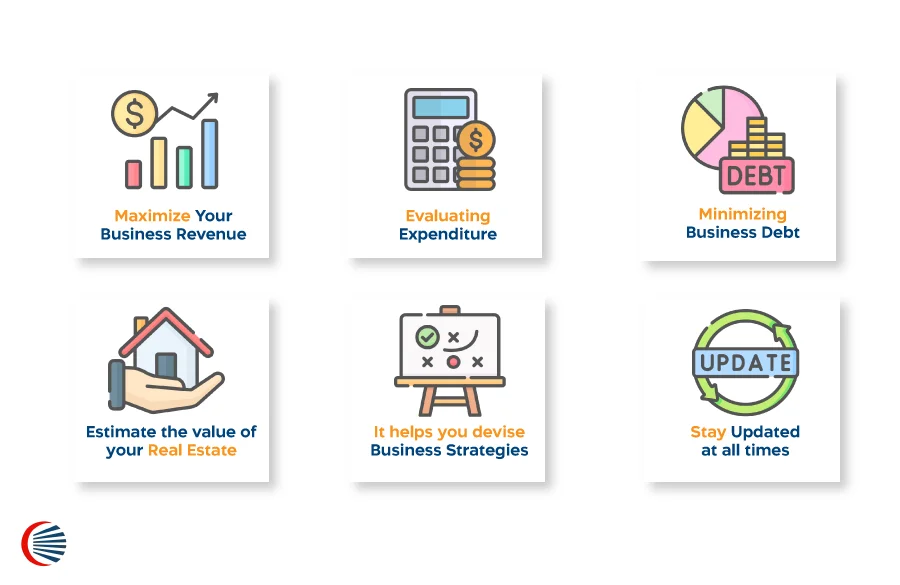The Future of Construction & Real Estate and How to Maximize Profits
Exactly How Construction Accounting Plays a Vital Function in Successful Construction & Realty Administration
In the world of building and property management, the complexities of building and construction audit can not be overstated. It serves as the backbone for precise expense estimate, effective budget monitoring, and strategic capital optimization, all of which are vital for preserving project feasibility. Furthermore, adherence to regulatory compliance and leveraging technological developments can considerably enhance functional efficiency. The true influence of these techniques usually unfolds in unanticipated ways, revealing much deeper understandings into job efficiency and stakeholder connections. What are the hidden factors that raise building bookkeeping from a mere need to a calculated advantage?
Importance of Accurate Expense Estimate
Precise price estimate is a foundation of effective building audit in property administration. It functions as the foundation for job preparation, monetary forecasting, and resource allowance. By providing exact price quotes of labor, products, devices, and overhead prices, stakeholders can make informed decisions that improve monetary viability and lessen dangers.
A well-executed price estimation procedure allows job supervisors to identify possible economic pitfalls early, making sure that projects continue to be within budget plan and on time. This proactive approach not just safeguards against expense overruns yet also promotes count on amongst customers, investors, and specialists.

Additionally, they play a crucial role in safeguarding financing, as lenders typically need in-depth expense failures to analyze the usefulness of a project. Construction & Real Estate. Ultimately, the accuracy of price estimates directly influences the general success of building and construction tasks, driving productivity and sustainability within the realty management landscape
Budget Plan Administration Techniques
Effective budget plan administration methods are vital for successful building and construction tasks in property management. Applying a detailed budgeting structure entails numerous vital components, starting with the facility of a detailed budget that encompasses all job aspects, consisting of labor, products, permits, and backups. This preliminary budget plan acts as a benchmark versus which all expenses are determined.
Regular tracking and upgrading of the budget plan are important. This consists of carrying out difference analyses to recognize inconsistencies between forecasted and real costs. By doing so, job managers can swiftly deal with any problems that arise, making sure that the task stays on course economically.
In addition, incorporating modern technology with construction audit software can improve budget administration procedures. Such tools assist in real-time tracking of expenses and offer understandings into financial performance, consequently sustaining notified decision-making.
Moreover, promoting open interaction amongst all stakeholders-- clients, professionals, and vendors-- ensures that everyone is straightened on budget expectations, lowering the possibility of misunderstandings that can cause budget overruns.
Ultimately, an efficient budget management approach not just safeguards against economic risks however likewise adds to the general success and earnings of building and construction tasks within the real estate sector.
Cash Money Circulation Optimization Strategies
Maintaining a well-structured budget plan is a crucial foundation for cash flow optimization in construction projects. Reliable money circulation administration starts with precise forecasting, which enables job supervisors to expect costs and income, making certain that funds are assigned appropriately. Consistently updating capital estimates in reaction to changing project conditions can aid identify possible deficiencies early, enabling prompt restorative activities.
Carrying out a robust payment process is an additional necessary method. Construction Accounting. Developing clear payment terms and maintaining regular interaction with customers can expedite repayments and use this link reduce delays. Utilizing progress payment-- billing clients based upon completed job-- can even more enhance capital by lining up revenue with task turning points
In addition, optimizing procurement approaches can significantly affect capital. By working out desirable payment terms with providers and subcontractors, building and construction firms can handle discharges better. This might consist of capitalizing on discounts for early repayments or developing versatile funding plans.
Lastly, preserving a book of functioning resources can offer a buffer against unexpected expenses or hold-ups. Routinely reviewing cash money circulation declarations makes sure that administration continues to be enlightened about monetary health and wellness, permitting tactical decision-making that safeguards job practicality and success.
Compliance and Governing Considerations
Navigating the complex landscape of conformity and regulatory considerations is vital for building and construction companies in real estate monitoring. Following regional, state, and federal guidelines makes certain not only lawful compliance but likewise the guarding of a firm's credibility and financial health and wellness. Building and construction business need to stay watchful regarding zoning regulations, developing codes, work-related safety and security requirements, and environmental laws. Failing to abide can lead to fines, job delays, and even lawsuit.
Additionally, economic coverage requirements, consisting of tax obligation obligations, necessitate precise record-keeping and accurate audit techniques. The construction market undergoes distinct financial obstacles, such as progress invoicing and retainage, which have to be handled in conformity with governing standards to keep conformity.

Additionally, labor legislations and wage regulations are essential factors to consider, particularly when managing a diverse labor force. Making sure that subcontractors and workers are paid rather and in conformity with labor legislations not only minimizes risks yet likewise fosters a positive office culture.
Advantages of Technology in Accountancy
As construction companies welcome technological innovations, they open a myriad of advantages that boost their audit techniques. Construction CPA Accounting Firm. One of the most substantial advantages is the automation of routine tasks, such as invoicing and pay-roll handling, which reduces human error and maximizes valuable time for accountancy professionals to concentrate on strategic decision-making


Furthermore, advanced analytics devices give understandings Discover More right into monetary trends, allowing companies to anticipate budgets more accurately and handle cash circulation successfully. The assimilation of mobile modern technology additionally equips field employees to send expenditures and timesheets straight from work websites, simplifying data collection and expediting reimbursement procedures.
Furthermore, durable protection steps intrinsic in modern audit software application shield delicate financial details from potential breaches, making certain compliance with governing demands. In recap, leveraging innovation in building audit not only boosts effectiveness and accuracy yet also sustains better financial administration and strategic growth within the sector.
Final Thought
In conclusion, construction accounting serves as a foundation for effective building and construction and actual estate monitoring. Ultimately, the assimilation of durable audit techniques promotes educated decision-making and contributes to the effective distribution of building and browse around here construction tasks within recognized monetary and organizing restraints.
In the realm of building and construction and actual estate monitoring, the complexities of construction accountancy can not be overstated.Effective spending plan monitoring strategies are important for effective building and construction jobs in genuine estate administration.Preserving a well-structured budget is a vital foundation for cash flow optimization in construction tasks.In verdict, building accounting serves as a cornerstone for successful building and construction and genuine estate monitoring. Eventually, the integration of durable bookkeeping methods promotes educated decision-making and contributes to the effective delivery of construction tasks within recognized financial and scheduling constraints.